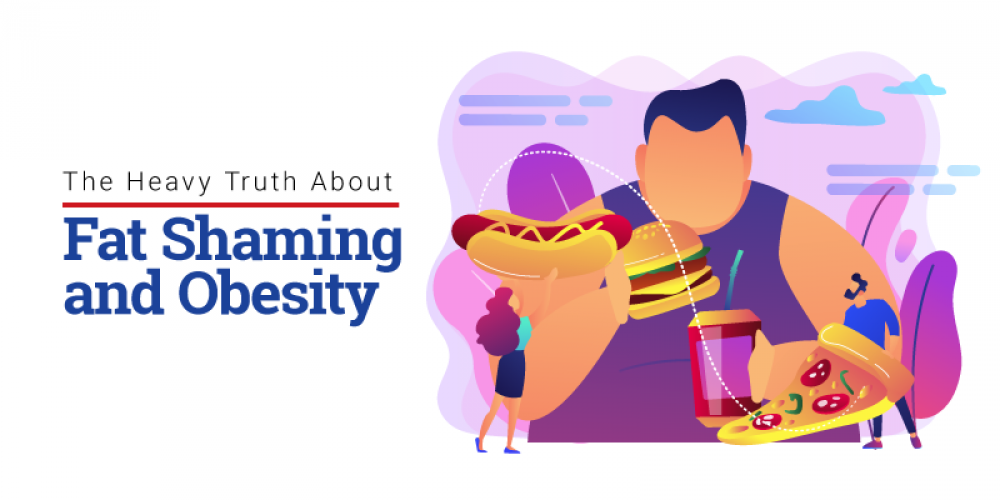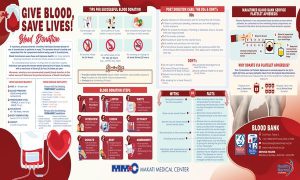We all agree that obesity is an epidemic that must be addressed, but fat shaming isn’t the solution to reverse it. Although it has been around for decades on end, fat shaming causes more problems than it solves. With the events that transpired during one of the recent episodes of Bill Maher’s evening talk show, Real Time, people are again putting the spotlight on how fat shaming negatively affects obesity rather than help fight it.
In his statement, Bill Maher proposed body-shaming as a solution to combat the rampant epidemic of obesity in the United States by stating that, “fat shaming doesn’t need to end, it needs to make a comeback.”
The multi-awarded British comedian, James Corden, took to The Late Late Show to call him out on his unsubstantiated, snarky remark on fat shaming—pointing out that body-shaming is not merely cruel, but neither does it offer a viable solution to the problem. He argued that, “It’s proven that fat shaming only does one thing, it makes people feel ashamed and shame leads to depression, anxiety, and self-destructive behavior—self-destructive behavior like overeating.”
The statement by James Corden that body-shaming shouldn’t make a comeback, in fact, holds water. According to a study, children who were exposed to weight-related teasing gained more weight than children who didn’t experience fat shaming themselves.
What Is Fat Shaming Exactly?
Fat shaming is the act of intentionally harassing a person who is overweight and criticizing their eating behavior and diet. Often, people who turn to body shaming never had an issue with weight management and don’t know the struggle of constantly trying to lose weight.
In many instances, body-related discrimination and teasing are wrongly justified as a motivational comment to urge people to improve their diet, exercise more, and cut weight. However, science has proven that nothing could be further from the truth.
What You Should Know About Obesity
The world’s obesity rate continues to rise rapidly, with the number of cases nearly tripled throughout the globe since 1975. This has caused the medical community to turn their attention to solving this widespread epidemic.
Through years of extensive research, science has consistently proven the complexity that comes with overweight issues and obesity. Further studies have led to the conclusion that obesity treatments must go beyond prescribing diet and exercise.
There are many factors that come into play when assessing, treating, and preventing obesity, including education, socioeconomic background, access to healthcare, genetics, and mental health. This briefly explains why body shaming can never be the answer to curtailing such an epidemic.
To give you a better grasp of what obesity is, its complications and harmful effects, scroll through the infographic below—and get to know key tips to fight obesity and how to clap back on snarky body-shaming remarks.
Obesity and Its Morbid Reality
Obesity is a condition in which a person accumulates excess body fat that causes a noticeable decline in their health. The most widely used method to help determine whether you have a healthy weight is through checking your body mass index (BMI)—this is accomplished by cross-examining your weight for your height.
According to the World Health Organization (WHO), for adults, being overweight means having a BMI greater than or equal to 25 while obesity is having a BMI greater than or equal to 30. More than just the number of kilograms, obesity can cause a myriad of health problems including stroke, heart disease, diabetes, and some types of cancers.
According to the Economist Intelligence Unit (EIU), there are 18 million Filipinos who are battling obesity and overweight issues. Moreover, according to reports, obesity cost the country around $500 million and $1 billion in healthcare spending—making the Philippines the 4th highest spender on treating obesity-related health problems back in 2016.
Why Fat Shaming Does More Harm Than Good
Overweight issues and obesity have become a touchy, emotionally-charged subject throughout the globe as the disease not only causes physical problems, but can also change the physiological and behavioral characteristics of an individual.
In addition to issues with self-image, people today thrive in bringing down other people—resulting in the rampant and constant body-shaming comments and hurtful jokes surrounding the media, the internet, and in ordinary daily interactions.
Aside from mental health problems and behavioral changes, a recent study has even confirmed that people who personally experienced weight-related discrimination had a 60% increased risk of dying.
Rather than motivating people to live a healthier lifestyle, fat shaming and weight stigma can trigger changes in a person’s psychological and behavioral characteristics. As a matter of fact, body shaming has been confirmed to have strong links to poor metabolic health, depression, increased appetite and weight gain, and increased risk of suicide.
How to Fight Obesity
1. Exercise at least 30 minutes every day
Crack a sweat with workouts or activities for at least 30 minutes a day, seven days a week. Don’t worry, you don’t have to sign up for a membership at your local gym—you can simply perform a few moderate-intensity workouts. You can start by lifting light weights, then running a few miles, and cooling down by doing a bit of yoga on your porch.
2. Eat a healthy, well-balanced diet
Start by making small changes in your eating habits like throwing in fruits and vegetables, while avoiding unhealthy, highly processed meat, cutting back on sugar intake, and choosing whole grain foods. To have more tailored dietary guidelines suited to your specific needs, you can also visit a weight management clinic.
3. Get at least 7 to 8 hours of uninterrupted sleep
Some of the negative effects of lack of sleep include increased abdominal fat cell growth and loss of muscle mass—prompting insulin resistance which can lead to uncontrolled weight gain and obesity. Avoid common triggers and stressors to help you sleep better. Try basic meditation techniques to help you get a good night’s sleep, too.
4. Limit your screen time
Avoid situations where you could be tempted to munch on junk food and overeat, such as sitting in front of your laptop or TV and binge-watching. By limiting your screen time, you can skip the junk food—instead, you can workout to distract yourself from craving unhealthy snacks. Or, you can simply drink lots of water.
5. Join a local support group
Generally, doing things alone can be harder than doing them with supportive people around you. This also applies in the journey to cutting down weight and living a healthier lifestyle.
Now that science has clearly established how to better deal with weight management issues and obesity, let’s work together to put a stop to the rampant body-shaming across the internet, media, and in daily interactions.
Let us put obesity back in the spotlight and direct the attention of the medical community to one of the most widespread health problems across the globe.












